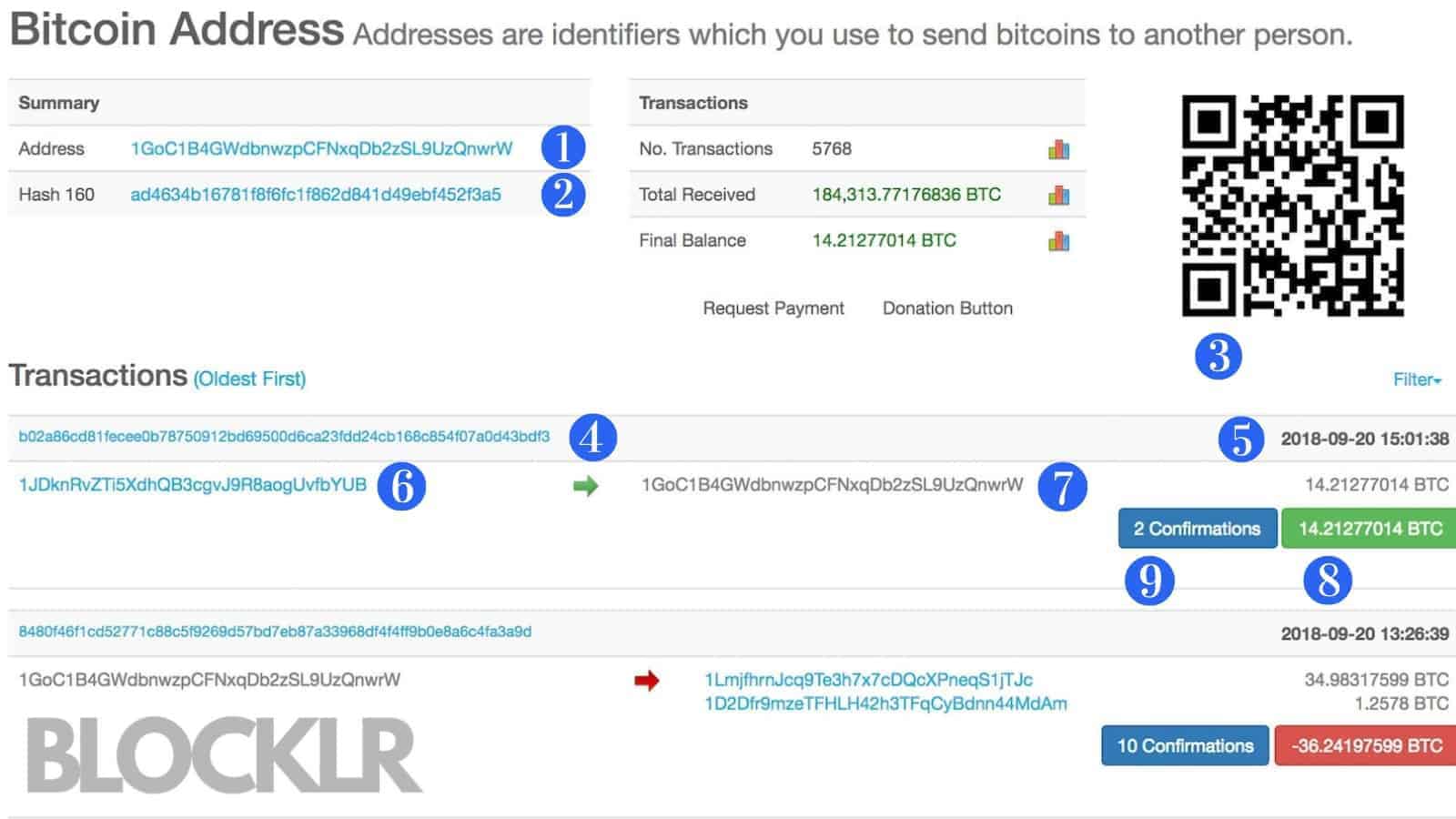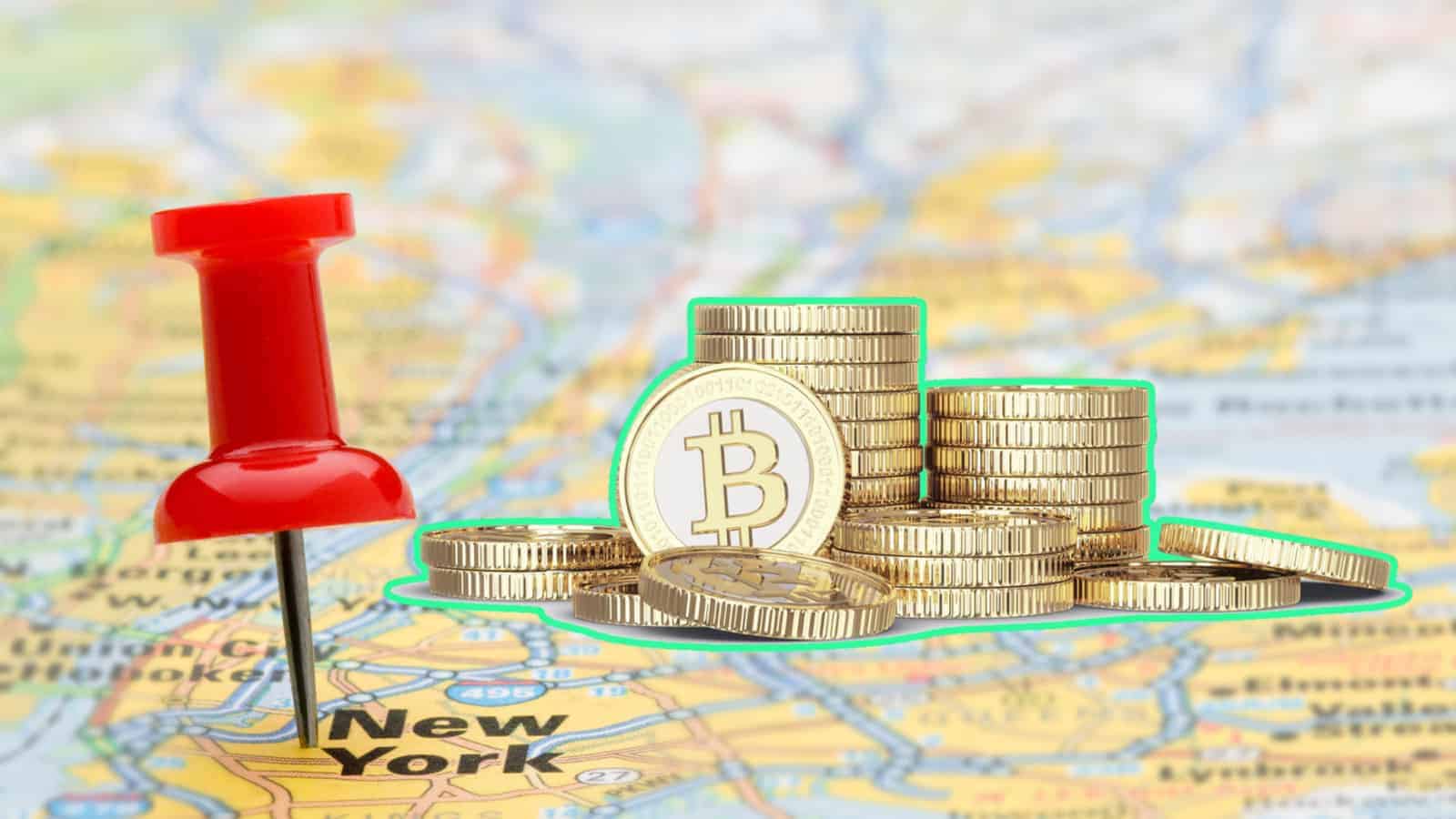Before you buy something that Uncle Sam might not approve of, you should be able to answer one question: How anonymous is Bitcoin really? At one time, Bitcoin was the black market’s go-to currency. But by nature, Bitcoin transactions are no secret. Still, can you track a Bitcoin transaction or figure out who exactly owns a Bitcoin address?
50% of Bitcoin Transactions Are Illegal

When the FBI shut down the Silk Road, the original online black marketplace, they confiscated 26,000 Bitcoins. Today, this would be worth $167 million. Correspondingly, Bitcoin price fell 25% on the day that the authorities took Silk Road founder, Ross Ulbricht, into custody.
Today, many people still use Bitcoin for illegal transactions. A study conducted in Australia found that 50% of all Bitcoin transactions are connected to illegal activity. Furthermore, 1 in 4 Bitcoin users has used Bitcoin illegally.
Other Black Market Crypto
Today, Bitcoin isn’t your only option when it comes to black market cryptocurrency. Monero is a crypto that automatically encrypts the identities of the parties involved in a transaction and the amount exchanged.
Since it’s virtually impossible to trace on the black market, or anywhere, Monero is the new go-to black market crypto. Especially seeing that 85% of illegal crypto mining targets Monero.
Today, the most common black market cryptos are Bitcoin, Monero, Zcash, Ethereum, Bitcoin Cash, and Litecoin. Two of these, Zcash and Monero, provide the most encryption and, therefore, the most privacy.
Still, people continue to use Bitcoin to buy drugs, guns, and porn. How anonymous is Bitcoin if people continue to use it illegally, seemingly without consequence?
Bitcoin Is Public by Nature

What is Bitcoin’s connection to blockchain technology? Bitcoin exists on a public blockchain which is essential because the Bitcoin network requires miners to verify every transaction. This means that, in theory, every Bitcoin transaction has to be public in order to be accepted by the network.
All Bitcoin transactions are also stored on the blockchain. They cannot be altered or deleted—unless there is a 51% attack. This means miners see your transactions, and, theoretically, anyone can go back and look at every Bitcoin transaction ever.
But just because the cryptocurrency is public on blockchain does not mean that everything about you and your finances is visible on the internet.
What Information Is Public?

Courtesy of Blockchain.com. Each number corresponds to a term in the following list.
Above is an example of a past Bitcoin transaction. Here’s a breakdown of all the information which can be accessed, as labeled in the image above:
1. Address: A virtual location to which you can send money. Though you can re-use your address, more privacy-centric exchanges like Coinbase automatically create a new one for each transaction. Funds sent to all your addresses end up in your crypto wallet.
2. Hash 160: Otherwise known as your public key, this is the second part of your “key pair.” A Hash 160 is the shorter, simpler version of your private key, from which it is mathematically derived. Keep in mind that this algorithm only works one way. You create a public key from a private key, not the other way around.
3. Public Bitcoin Code: A barcode-like square that is the same thing as the address, just in scannable form.
4. Transaction Number: Each transaction has a unique number. As you can see, several are listed under this same Bitcoin address.
5. Date and Time: Exactly when Bitcoin was sent/received.
6. Sender Public Bitcoin Address: The address of the person (under the transaction number) who is sending Bitcoin.
7. Receiver Public Bitcoin Address: The address of the person (to the right of the sender) that is receiving the Bitcoin. In this case, the one we’re looking at is receiving rather than sending. This is why the arrow is green.
8. Total Amount Sent/Received: To the right of the receiver.
9. Number of Confirmations: How many times the Bitcoin blockchain, meaning miners, has confirmed a transaction. Depending on the network, a transaction can necessitate between 3 and 6 confirmations in order to be added to the blockchain.
What You Don’t Know about a Transaction
Though this may seem like a lot of accessible information, it doesn’t actually include any specifics about you. First and foremost, your address is not publicly linked to your name or crypto wallet.
Secondly, you can use a new address for every transaction. This makes it even more difficult to track how much BTC is going to and from a specific account.
Re-Using an Address

Courtesy of Blockchain.com. This is a graph of the previous address’ transaction history since its inception.
How anonymous is Bitcoin if you reuse an address? If someone uses the same address for multiple transactions, that information is public. For instance, the above image depicts the same address from the transaction we looked at earlier. Since the user did not use a new address per transaction, we know that they have exactly 14.21 BTC in their account. The blue lines also show how much BTC they’ve traded and when the trades occurred.
Most people do not want the Bitcoin equivalent of their bank statement to be public. For that reason, it’s very common to use an exchange that automatically generates a new address per transaction or a program that will do that for you for free.
But even if you don’t use unique addresses, it would seem that your Bitcoin transactions are still somewhat anonymous.
Tracing Bitcoin Transactions

How anonymous is Bitcoin? Back in 2011, most people, including the FBI, had never heard of Bitcoin. In fact, it took the FBI two years to catch “Dread Pirate Roberts,” otherwise known as Ross Ulbricht, the founder of the Silk Road.
Instead of making it easier to trace transactions, Bitcoin’s distributed ledger was an impediment. The FBI had to rely on other centralized means of exchange to track down Ulbricht. Specifically, the FBI linked drug shipments back to sellers. And after they arrested these vendors, they gained control of their Silk Road accounts. Posing as a buyer, they established a relationship with Ulbricht.
Furthermore, the government traced Ulbricht’s alias to his Gmail, which also served as evidence. Only when transactions moved beyond Bitcoin’s blockchain did the FBI find Ulbricht and his associates.
Research on Bitcoin Anonymity
Today we know a lot more about Bitcoin than we did in 2011. Research conducted by Diana and Philip Koshy and Patrick McDaniel at Pennsylvania State University proved that you can trace a Bitcoin transaction to an IP address without using information outside the blockchain.
Earlier research, like that of Fergal Reid and Martin Harrigan, traced Bitcoin transactions to IP addresses using outside information like forum group posts. In essence, this is how the FBI discovered who Dread Pirate Roberts was and connected him to the Silk Road.
But the Koshys’ and McDaniel’s paper, “An Analysis of Anonymity in Bitcoin Using P2P Network Traffic,” was the first time that someone explained how to connect transactions to IP addresses without leaving the blockchain. Keep in mind that blockchain does not store IP addresses by design.
From Transaction to IP Address

Over a 5-month period, the Koshys and McDaniel connected almost 1,000 Bitcoin addresses to specific IP addresses. In total, they looked at 5,617,202 transactions. They did this by creating their own blockchain node with the explicit purpose of collecting all data (rather than verifying transactions), including rejected transactions.
By finding anomalies in the data, they were able to link some transaction addresses to IP numbers. They noticed that sometimes a transaction would only be sent out by one computer. This meant that the IP address owned that address. Additionally, when transactions came out almost simultaneously from one computer, that suggested that the user was upgrading their software—and that all those addresses belonged to that one IP address.
By making those initial connections, the Koshys and McDaniel were able to link other addresses with other IP addresses. However, it’s important to note that they only found 1,000 IP addresses out of over 5 million.
Crypto Cybersecurity Business Is Booming

Today, crypto and blockchain security companies are in high demand. They assist law enforcement in catching criminals and help crypto exchanges, ICOs, and tech companies follow the law.
Blocklr spoke with Dave Jevans, CEO of CipherTrace, a blockchain and cryptocurrency forensics company based out of California.
Jevans explained, “The fact is that they [criminals] do use Bitcoin and other cryptocurrencies, just as they use cash, prepaid debit cards, and money mule bank accounts to move money illicitly around the world.”
CipherTrace uses digital forensics to track crypto criminals. This can mean “the examination of a hard drive or mobile phone to determine if there is a Bitcoin or other cryptocurrency wallet on that device,” Jevans added. “Digital forensics can also refer to using a blockchain to follow transactions.”
Despite technological advancements, it’s still very difficult to connect someone’s Bitcoin transaction address to their IP address. Often, this can be done using information found outside a cryptocurrency’s blockchain.
Bitcoin Exists Beyond Blockchain

When asking, ‘How anonymous is Bitcoin?’ It’s important to remember that Bitcoin does not exist in a vacuum. This means that while it’s possible to connect IP addresses to Bitcoin addresses within the blockchain, there are simpler ways to do this if you go beyond the distributed ledger.
Apart from linking your Bitcoin address to your name on the internet (think: Reddit, forums, Facebook, etc.), centralized organizations are the best way for governments and corporations to connect you to your addresses. In other words, cookies and other online trackers can connect you to your Bitcoin when you buy something.
In a paper entitled “When the cookie meets the blockchain,” Steven Goldfeder of Princeton University demonstrates that third-party cookies on shopping websites generally have enough information about you to connect your blockchain transactions to your “cookie.” With one transaction, they can link your Bitcoin address to your name and home address.
The paper also argues that if a web tracker can connect two purchases to one person, then it has access to all addresses associated with that person, meaning the entire history of their blockchain transactions. This would even be true for users who made double payments, meaning that they involved a third party in their transaction to purposefully obfuscate their identity.
Crypto Wallets and Exchanges Know Who You Are
The most secure cryptocurrency wallets can also store a lot of personal information. For example, in 2017, Coinbase had to turn over the identities of all users who trade more than $20,000 annually to the IRS.
Other wallets are more secretive. Some don’t even require an email or phone number to set up. But keep in mind that these can still be hacked.
How Anonymous Is Bitcoin in a Decentralized Market?

How anonymous is Bitcoin if you only use it for purchases in a decentralized market? OpenBazaar is essentially the decentralized version of eBay. On eBay, you trade USD for goods through a centralized organization that takes 10% of the profit. Conversely, OpenBazaar lets you exchange anything, legal or illegal, for virtually any cryptocurrency without paying fees.
In other words, exchanging a decentralized currency on a decentralized marketplace provides another level of Bitcoin anonymity. While third-party cookies on online retailers store your transaction data, OpenBazaar has no central organization that you can hack or subpoena.
Now, OpenBazaar also functions as a cryptocurrency trading platform for over 1,500 coins and tokens.
How Anonymous Is Bitcoin, Really?
Bitcoin is pseudonymous, not anonymous. In other words, it superficially conceals who you are, but there are many ways to connect your crypto identity to your actual one. Once that information is out in the open, it’s there forever. For starters, data about every transaction is public. Anyone can look up a specific address and find out which transactions are linked to it, how much they were, and when they occurred. The next step—connecting your addresses to your IP address—is difficult. Cybersecurity companies and data scientists can do it, though it takes time and resources. How anonymous is Bitcoin? Though it initially conceals your identity, Bitcoin is far from anonymous. This is one of the reasons why terrorist groups don’t use crypto.

